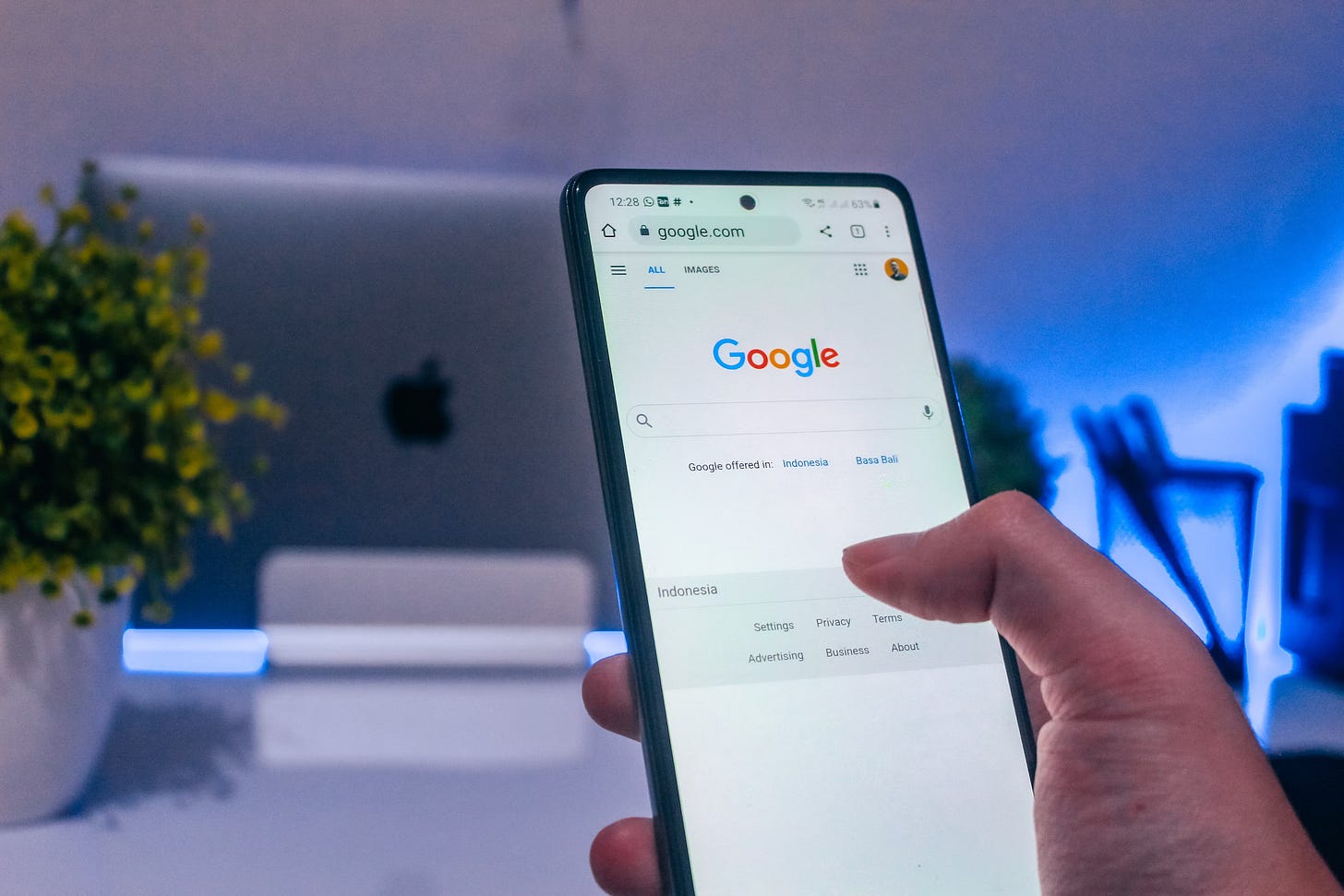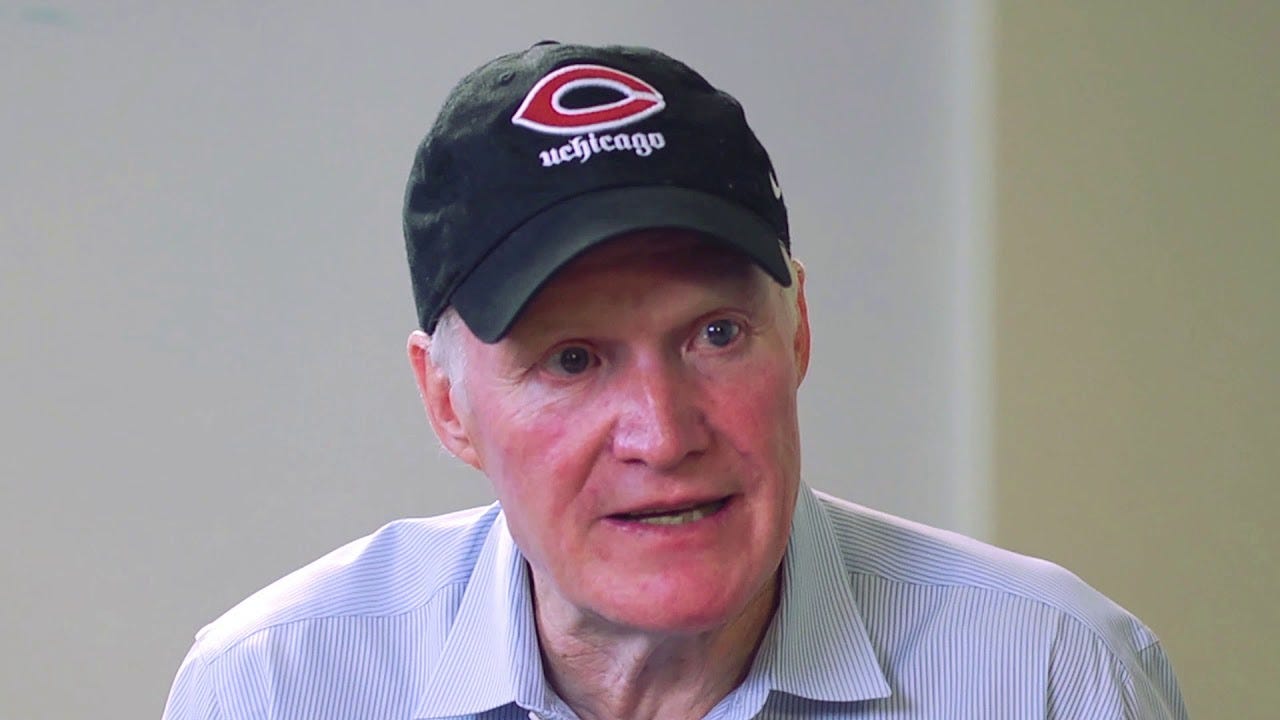Google shares 36% of its revenue with Apple
Welcome to Big Tech on Trial. This free newsletter is brought to you by the BIG newsletter with daily coverage on the Google antitrust trial reported by Lee Hepner and additional commentary from Matt Stoller.
The 36% Apple Tax is leaked, and the Chicago School makes its last stand.
Day 39: Google’s final witness, Chicago School economist Kevin Murphy, accidentally leaked one of the most guarded numbers of the trial and said a whole bunch of disturbing stuff about monopolies.
Hi, I’m Lee Hepner, an antitrust lawyer, and I’m taking over for Yosef Weitzman in the home stretch of the Google Search antitrust trial. Here’s what happened on the first day of the last full week of the most important antitrust trial in 25 years:
All Kevin Murphy had to do was stick to the script and respect the redactions. It should have been an unexciting day of boring economics. And yet, about two hours into his testimony this morning, Google’s final witness, an expert economist and semi-retired University of Chicago professor, let loose one of the most guarded numbers of the trial: the percentage of Google’s revenue that it shares with Apple to secure its default status across all Apple devices.
We now know that Google pays Apple 36% of its ad revenue derived from its default search agreement with Apple. Let’s put that number in perspective: On Day 29, we learned that Google paid approximately $26.3 billion in 2021 to be the default search engine across all of its search distribution channels. We’ve heard estimates that Google’s payment to Apple in 2021 was between $18-20B, suggesting Google’s total revenue from the Apple agreement (if 36% is based on gross revenue) is between $50-$56B.1 It’s likely that Google’s payment to Apple has increased significantly since 2021, along with the uptick in Google’s total ad revenue. I’m assuming Apple has secured the best rev-share term, given the centrality of this agreement to Google’s search ad business, and that Google’s rev-share percentage with entities like Verizon, AT&T and Samsung are probably lower. We can’t know, given that most of these numbers are secretive. But the point is, Google generates a lot of its ad revenue from these default search agreements, and we have a little insight into the relative bargaining power of Google’s partners.
The Google-Apple agreement has been a central part of this trial and is one of the most important contracts for determining how information flows across the internet. The revenue share agreement has allowed Google and Apple to “work as if we are one company” and has caused speculation that Google is, in fact, paying Apple to stay out of the search market altogether. The 36% revenue share that Apple gets from every Google search on its devices also functions as an “Apple Tax” on every ad that gets placed on a Google device. Whether that is passed on to consumers in some form or another is likely.
Murphy fumbled the ball on letting the number out. Google’s lead counsel, John Schmidtlein, was visibly upset. But it was far from the most disturbing thing Murphy said today. The difference is that the rest was intentional.
Google’s expert says monopolies are good for you.
Kevin Murphy is an old school Chicago School economist. He’s been an economics professor at the University of Chicago since before I was born and still teaches some classes there. The University of Chicago is famous in the antitrust world for popularizing the consumer welfare standard in the 1970s and 1980s, which has contributed to an erosion of antitrust legal theory via a narrow, price-focused application of anti-monopoly laws. It’s part of why markets are so concentrated today, and why there are monopolies across so many industries.
So it’s fitting that Kevin Murphy’s core argument was that Google’s default search agreements enhance rather than harm competition. If that sounds odd, given what we’ve heard about how default agreements inhibit consumers from making informed choices, while foreclosing rivals from effectively competing with Google, that’s because it is odd. He didn’t really dispute the existence of Google’s monopoly at all. Instead, Murphy testified that Google’s search monopoly is actually good for competition among device manufacturers, wireless carriers, and internet browsers. So, Murphy says, you can just ignore the fact that Google has a chokehold on the search market itself.
Murphy’s testimony is not just that Google’s monopoly is good, but that Google should be able to expand its monopoly. The purpose of Google Search is to increase search volume, which increases revenue, which increases the amount of money that Google pays to its default partners (like device manufacturers, wireless carriers, and internet browsers.) As long as more search traffic is being generated, that’s good for everyone involved, even if Google maintains monopoly control over the entire ecosystem. Murphy also testified that device manufacturers, carriers, and browsers choose to partner with Google Search because it’s the highest quality search engine. But if Google is the highest quality search engine, why does Google pay tens of billions of dollars to maintain its default status, if it would be the top choice anyway?
In one of my favorite exchanges today, one involving Judge Mehta, Murphy had just testified that search rivals like DuckDuckGo, Yahoo and Bing nevertheless exert competitive pressure on Google to improve its search engine, even though they know they can’t be the default. Judge Mehta, in his typically calm demeanor, asked Murphy, “If the competitors are largely able to influence price but not ultimately win the competition, is that really a competitive market?”
Whether or not Murphy identifies as such, he revealed himself through today’s testimony to be a strident market fundamentalist, with disdain for regulations that enhance consumer choice or protection. He criticized privacy protections as adverse to a well functioning market: “You don’t want to think of more privacy as necessarily better. Privacy is good, but it comes at a tradeoff of higher quality.” He testified that “choice screens” that allow consumers to choose their search engine out of the box are bad for competition and “do not reflect a rational business practice.” He argued that consumers don’t actually want to make decisions, with the inverse implication that monopoly corporations like Google should make those decisions for them. It’s a condescending and pessimistic worldview at the root of why antitrust enforcement has been so hobbled for the past 40-50 years.
As for other search engines, Murphy says they’re not really trying to compete. When asked about DuckDuckGo, the privacy-forward search engine struggling to break through Google’s monopoly grip on the market, Murphy said something to the effect of, “DuckDuckGo is not trying to compete for a broader market. They’re not really competing for defaults. They’re a much more niche browser.” When asked about DuckDuckGo‘s privacy-protective approach, Murphy said, “They’re paying the tradeoffs. From the testimony I’ve heard, their search results have suffered to some extent.” Murphy was careful to explain that he’s an economist, not an expert on search quality. I suspect DuckDuckGo might disagree with both assessments.
Toward the end of the day, DOJ lead counsel Kenneth Dintzer began his cross examination of Murphy. Confronting Murphy’s assessment that choice screens are bad for competition and bad for users, Dintzer showed Murphy comments made by Google in the wake of the European Commission’s 2010 browser choice mandate. Google wrote, “EU browser bailout - victory for users, opportunity for Chrome.” Murphy was also shown statements by Apple and Yahoo that choice screens provide “a fair means for the user to choose the default search service.” Murphy didn’t budge: Consumer choice is bad for competition and bad for consumers, regardless if Apple, Yahoo, and even Google had said otherwise.
For folks steeped in antitrust, Murphy’s testimony rang of all the ways that anti-monopoly laws have been degraded over the past 50 years, and why they are so much more difficult to administer and enforce today. It’s a perspective that is equal parts frustrating-status-quo and woefully out of step with the moment. Google’s rebuttal case, as today’s testimony helped illustrate, is not that they don’t have a monopoly, but that their monopoly is good for you. Senator Sherman may very well be rolling over in his grave.
That’s all for now. DOJ will continue with their cross-examination tomorrow before starting its own rebuttal case, which should last through the week. A colleague said he saw expert witness Michael Whinston in the courtroom to watch Murphy’s testimony, which invoked Whinston’s own testimony several times. Whinston should be returning to the stand in the days ahead.
Big Tech on Trial is a free newsletter brought to you by the BIG newsletter. Subscribe for free to receive daily coverage of the Google antitrust trial and support the work of BIG.
An earlier iteration of this article erred in suggesting that Google’s revenue from its agreement with Apple was over $73 billion, based on a misunderstanding of an earlier reported number. I like to blame others for my mistakes, so I’m blaming the court for shielding these numbers from public view.





> DuckDuckGo is not trying to compete for a broader market. They’re not really competing for defaults.
Duckduckgo testified several weeks ago in this courtroom that they struggled to get browsers to set them as the default: https://www.bigtechontrial.com/p/what-is-it-like-to-compete-against
> Next, Weinberg testified about the attempts DuckDuckGo made over the course of several years to pitch browsers on making DuckDuckGo the default search engine for their private browsing mode. “We thought it was a pretty great pitch to browsers,” Weinberg said.
> But Weinberg explained that DuckDuckGo couldn’t penetrate the default agreements Google already had in place with browsers that prevented the browsers from using a different default for private browsing. DuckDuckGo’s pitch to browsers turned out to be a “quixotic exercise.”
As an economist I wrote off so-called economists like Murphy and the worst of them all, Milton Friedman, long ago. For all their brilliance, they are all complete idiots, never understanding the real world effect of their work. No one needs to be an economist to realize that the corporate consolidation creates monopolies giving corporations market power to charge prices that generate excess profits. I love telling these jerks the economics is NOT A SCIENCE.